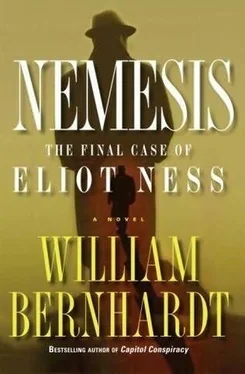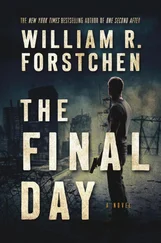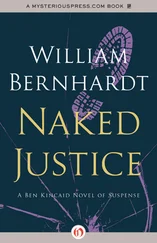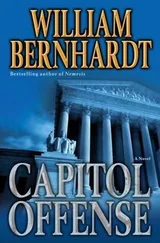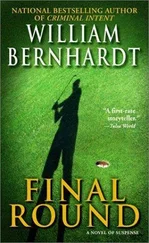“With respect, Doc,” Zalewski interjected, “we know what he is. A cold-blooded killer.”
“No, sir. You do not know what he is. And that is why you have not caught him.” He paused. “Have either of you any familiarity with the work being done in Vienna on the psychosexual aspects of crime?”
Merylo thought back to his experience on the vice squad. “Are you saying these are sex crimes? ’Cause I also-”
“Not exactly. I see no evidence of a sexual motivation. But an investigation into the likely sexual history of the killer yields much information about his psyche.”
“And why is that useful?”
Dr. Pearce answered for him. “This is what I was trying to explain to you before. If you know what he is, and why he does what he does, then you can anticipate what he might do next. And if you can do that, you just might be able to catch him.”
“Ask yourself,” Hunstein continued, “what could produce such hostility, such anger, as to make a man capable of committing the atrocities that have been perpetrated on these victims?”
“Merylo thinks they all worked together on some scam,” Zalewski volunteered, to Merylo’s dismay. “Or maybe they were all involved with the same woman.”
“I think that unlikely,” Hunstein replied. “I think it much more plausible that the killer’s psyche was scarred by a traumatic incident, or a series of incidents, in his childhood.”
“Now I have a real problem with that,” Ness said, scooting forward in his chair. For the first time, he seemed interested in the conversation. Merylo couldn’t help but wonder why. “Lots of people have bad childhoods. Doesn’t make them repeat killers.”
Hunstein lifted an eyebrow. “Indeed?”
“Gosh, I work almost every day with troubled boys, in my new Boys Clubs, or in my Boy Scout troop. Many of them have come from seriously troubled homes. But they’re not crazy. They just need a good role model. Someone to show them the way.”
“I think perhaps,” Hunstein suggested gently, “that you do not understand the magnitude of the childhood trauma I am describing.”
“Like you think the killer witnessed a murder or something?”
“Perhaps. But in our experience, it is more likely something of a sexual nature. It is most probable that your killer was abused as a child.”
“Abused?” Zalewski screwed up his face. “You mean, like slapped around? ’Cause my ma used to-”
“I mean sexually abused. Repeatedly.”
“Oh.” He fell silent. “By who?”
“In most cases, a close friend or relative. Probably a male, since most of his victims have been male. A father. Grandfather. Friendly uncle or neighbor. It doesn’t matter. But this killer exhibits all the pathology of a mind twisted by sexual abuse, deranged by the conflicted feelings arising from being abused by people he adored.”
“Does that happen? To boys?”
“I’m afraid that it does. And it can work devastating effects on the personality. Particularly when coupled with other elements of instability-broken homes, single parents, alcoholism, drug abuse. He was probably isolated as an adolescent, or even earlier. Lonely, withdrawn, always suppressing feelings of great rage. He probably engaged in fantasies in which he was a person of great power. An über-man. Interpersonal relationships would have been difficult, so he probably did not play sports or join clubs. He may have indulged in pornography, if he could find it, as a way of redirecting his interest in sex, since he would be unlikely to sustain a healthy relationship with a female of his own age. He might turn to drugs or alcohol for relief. Eventually, he found the means and ability to carry out his power fantasies. On other people.”
Merylo couldn’t remain silent any longer. “This is all well and good, hearing about the killer’s tragic childhood. But who is he? You haven’t actually given us any information about the murderer himself.”
“My dear detective, have you not been listening? The information is all around you. I can tell you much. He is almost certainly male, probably between the ages of twenty and forty, probably white.”
“How can you-”
“He is smart, well-read, familiar with chemistry. Strong.”
“This is old hat.”
“He may very likely have a physical deformity.”
Merylo fell silent.
“He was probably raised in Cleveland. He knows it well. He has some kind of income flow, some means to support himself while he plans and executes his crimes. Given the unlikelihood that he is able to maintain a job of any substance, he may come from a wealthy family.”
“Come on!”
“I will go further. He may not only be connected to money-it is very possible that the other members of his family know, or at least suspect, that he is a dangerous man. They, perhaps, may even suspect that he is the notorious Torso Killer.”
“Then why wouldn’t they say anything?”
“Would you want it known that the Torso Killer was your son? Or nephew? Or husband?”
Merylo did not reply.
“At best, you might try to hide him away, or somehow remove his ability to kill. But you would not turn him in, especially if you were well connected. Prominent. To do so would be to destroy yourself.”
“If this guy’s so rich,” Zalewski asked, “why’s he hanging out in Kingsbury Run all the time?”
“Where better to find easy prey? People no one will miss. He has killed five, perhaps six times. And you have identified two of his victims. Kingsbury Run will provide him an endless supply of unknown or little-known victims.”
Merylo scratched his head. “I don’t know. This all seems pretty farfetched.”
“I assure you, it is not.”
“But if the guy is just some loony rich kid preying on vagrants for no reason other than that he got hurt when he was a kid, how are we ever going to catch him?”
Pearce leaned forward. “Dr. Hunstein is an alienist, not a detective.”
Hunstein held up a hand. “That is true. And I would not presume to interfere in your work. But if I were to be allowed to make one small suggestion…”
“Yes?”
Hunstein paused. “I believe that in the past you have interviewed people in Kingsbury Run looking for connections. Associations. But this killer is much more likely to select victims with whom he has no association-so they can never be traced back to him after the bodies are found.”
“I’m not sure, Merylo,” Zalewski said quietly, “but I think he’s say-in’ we’re barkin’ up the wrong tree.”
“I’m sure,” Merylo grunted back. “So you think we got it all wrong, huh, Doc?”
Hunstein considered. “I think you are looking in the right place for the wrong person. Instead of looking for connections, I would look for someone who has no connections. I would go to Kingsbury Run and look for the man who does not belong, but still does not attract attention. The man who is not a vagrant, or hobo, or small-time criminal, even though he might pretend to be. Look for the man who is there solely for the same reason that you might go to a well-stocked trout pond.” He drew in his breath. “Look for the man who is stalking his prey.”
Merylo considered. He still didn’t buy into all this childhood trauma hugger-mugger. And the killer being well connected? Preposterous. But the idea of looking for the man who did not belong…
It was almost worth considering. He had to try something new. What he had done so far hadn’t produced any results.
“Thank you for your time, Dr. Hunstein,” Ness said, rising. “We appreciate your contributions. I’m sure there’s much to what you said. I’m all for using science whenever possible. Though I prefer the sciences that are… you know. More certain.”
Читать дальше
